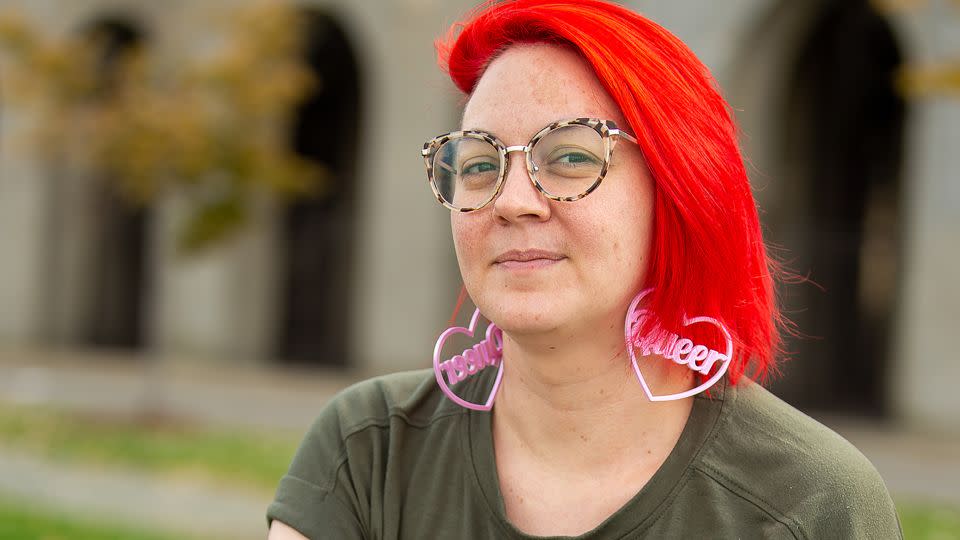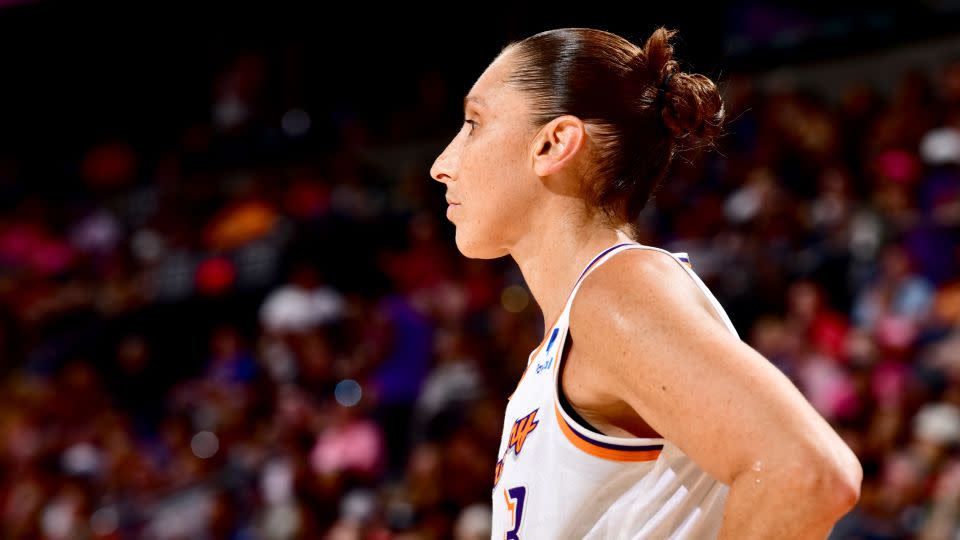Opinion: Caitlin Clark and Angel Reese are in the WNBA now. Stop telling them to ‘play nice’
Editor’s Note: Frankie de la Cretaz is an independent journalist whose writing sits at the intersection of sports and gender. They are the co-author of “Hail Mary: The Rise and Fall of the National Women’s Football League,” and their work has been featured in The New York Times, The Atlantic, Sports Illustrated and other publications. The opinions expressed in this article are their own. Read more opinion at CNN.
Women’s basketball finally has the kind of audience it deserves, with the NCAA Championship Game drawing 24 million viewers in what some have called the “Caitlin Clark effect” and others have just called “a long time coming.” That is great for the game and has brought in a ton of new fans. It also means there are more eyes on the sport than ever before, with stars Clark and Angel Reese, among others, being drafted into the WNBA Monday night as a record-breaking 2.45 million people watched.

With an increased audience has come a lot of “calling out” of the behavior of the athletes, whether it’s Clark or Reese’s trash talking — despite both players explaining that it’s not personal and they don’t hate each other — or WNBA vets like Diana Taurasi taking digs at the incoming rookies.
“Reality is coming,” Taurasi told ESPN’s Scott Van Pelt about Clark’s success in college. “There’s levels to this thing. And that’s just life. We all went through it. You see it on the NBA side and you’re going to see it on this side. You look superhuman playing against some 18-year-olds, but you’re going to come play with some grown women that have been playing professional basketball for a long time.” At Outsports, Cyd Ziegler called it “a truly odd, disrespectful moment from Taurasi” while others have implied the 20-year veteran has “beef” with the incoming rook.
The public critique of the in-game actions of these players has been harsh, undeserved and completely removed from the context in which their chippiness exists. It’s also fostered a toxic environment for these women in ways that go far beyond trash talk on the court. “I have been attacked so many times,” received “death threats” and “been sexualized, threatened,” Reese said in a post-game press conference following LSU’s loss in the Elite Eight, marking the end of her collegiate career. “I’m still a human. All this has happened since I won the National Championship and I haven’t been happy since then.”
What masquerades as “criticism” from the public can cross the line into straight-up harassment, all because women’s basketball players like Reese engage in the tried-and-true art of talking trash to an opponent.
This criticism is sexist — how often do we expect men to play nice? Many people have noted the double standard when it comes to what men are allowed to say on the court, including the fact that, historically, players in the women’s game have seemingly been more likely to get technical fouls for things that are a routine part of the men’s game.
Kalani Brown, a WNBA player for the Dallas Wings who won an NCAA Championship with Baylor University in 2019 said last year that when she was playing in college, athletes couldn’t get chippy the way players do now because they would get called for a technical but she is glad that players can talk it up today. “It’s just kind of the stigma that we’ve always had,” she said. “These kids that are coming up are breaking it.”
Beyond the obvious sexism, the criticism also ignores that the women’s game has always been full of good-natured rivalries. The new kids might be breaking the mold — but they’re not the first to go hard at each other. Sports is a form of storytelling and there’s no protagonist without an antagonist, no hero without a villain. The WNBA players who recently shared their “welcome to the league” moments highlighted that. Stories ranged from Taurasi hitting someone in the face and the other player getting called for the foul to absolutely brutal shot blocks to hair pulling.

What about in 2017 when the San Antonio Stars’ Monique Currie was asked about the New York Liberty’s Brittany Boyd getting called for a technical foul after slapping the ball out of Currie’s hands and mouthing off to her and Currie said, “I couldn’t think straight because her breath was stinking?”
Or following a viral moment during the 2021 WNBA Finals between Kahleah Copper, then on the Chicago Sky, and the Phoenix Mercury’s Sophie Cunningham, when Copper responded by selling t-shirts featuring a photo of the incident? Or when Taurasi reportedly broke a locker room door following the Mercury’s loss to the Sky in the 2021 WNBA Finals, the Sky trolled the veteran player by bringing the broken door to their championship parade? Or the Sky’s Marina Mabrey’s whole entire thing?
Longtime WNBA viewers will be well acquainted with Taurasi’s mouth, whether it’s the number of times she’s featured in the aforementioned “welcome to the W” stories, her infamously telling a ref “I’ll see you in the lobby later” after she didn’t like a call he made (which you can also buy on a shirt) or her well-known love of heckling rookies.
“Every time you played rookies, you just wanted to f**king kill them,” Taurasi said on a 2020 Instagram Live with Sue Bird. Bird agreed, noting that “it’s so easy” to best first-year players.
“It’s physically punking them,” Taurasi continued. “It’s mental bullying that takes place right before the ball goes up. It happens in different ways like ‘Oh you had such a great senior year. I’m about to bust your ass right now.’”
The WNBA even nodded to this history in its new promotional video ahead of the 2024 season. The spot, called “Welcome to the W,” notes that the league is known for its “super welcoming” environment before showing a clip of Breanna Stewart blocking a layup from then-rookie Olivia Nelson-Ododa, and that it’s a place where “communication is highly valued” before cutting to clips of Taurasi and Chelsea Gray yelling at people.
“The vet talking about the rookie, that’s always happened,” comedian and women’s basketball superfan Morgan Murphy said on the “Pablo Torre Finds Out” podcast. “It’s not until somebody outside of that frames it as ‘women attacking women,’ that it becomes that to people who also probably didn’t watch the whole interview [or] read the whole article.”
Sports rivalries are part of what makes the games so fun. Why do we encourage men to have them but criticize women for the same? “If we can’t express how the guys do, how do you expect us to react?” LSU guard Kateri Poole said last year. “We’re gonna talk trash. It’s just the reality of the game and it makes the game more exciting … What we’re doing and what other teams are doing is just empowering women.”
Having athletes fans love to hate gives them someone to root for — or against — and adds a level of spice to the game that you just can’t get any other way. Sports are entertainment and it’s always more enjoyable when there’s conflict involved; after all, tension is what defines a good story. I don’t want to see less trash talking, I want to see more. I don’t want to see women pressured to be polite or likable, I want them to be allowed to be a**holes. Let women athletes be haters — sports needs more of them.
For more CNN news and newsletters create an account at CNN.com

